- Home
- Brian Garfield
Necessity Page 2
Necessity Read online
Page 2
Must get out of here.
She studies the jack and the car. There’s what looks like the open end of a pipe directly under the door post at the side of the car. Is the jack meant to fit into that? Why not give it a try.
It fits, a male member into a female receptacle. She turns the crank and is pleased enough to smile when the side of the car begins to rise.
Another cluster of traffic goes by. She doesn’t ask for help; no one stops. After they’re gone she puts her weight against the crank handle and soon both left wheels are off the ground. She locks the crank in place and pries the hubcap off.
One of the lug nuts is so stiff she has to stand on the handle of the tire iron to break it loose but finally she has all five nuts in the upturned hubcap and she horses the flat tire off the car. Her hands are filthy and she’s ruined the damned dress.
She hears the crunch of gravel and looks up.
It pulls to a stop on the shoulder just behind her car: a Jeep or a Bronco, one of those outdoorsy four-wheel-drive vehicles—high and boxy, forest green. A man gets out of it.
His face is hidden inside a trim brown beard streaked with grey. He’s chunky and muscular in faded jeans and an olive drab tee shirt.
“Need some help?” His voice is pleasant enough. At least he’s not a cop.
She rises to her feet. She has the tire iron in her hand.
“I think I’ve got it licked. Thanks all the same.”
The man looks at the tire iron. He seems a little amused but she’s not sure—it’s hard to see what’s going on under the beard.
He says, “I had a flat tire on one of these Interstates a couple years ago. Discovered I didn’t have a jack. I waited seven hours for help and what I finally got was a ripoff artist in a tow truck, charged me fifty dollars just to borrow his jack and do the work myself. Ever since then, I see somebody broken down by the road, I see if I can do something.”
She’s trying to look icy. “Thanks for stopping. I really don’t need any help.”
He says, “I’m not a rapist, you know.”
“I hear you saying it.” She shifts the tire iron in her grasp: not an ostentatious movement but enough to remind him of it.
She says, “I appreciate the offer. It’s very kind of you. But I’m sure you’re on your way somewhere and I wouldn’t want to delay you. I’m fine. I’m not in any trouble.”
He watches her. She keeps her voice calm. “Please go.”
He looks at the tire iron. “I guess these days there just isn’t a whole lot of point trying to be a good Samaritan.” He turns with a reproachful snap of his shoulders and climbs back into his vehicle.
When he drives by he looks at her and she feels she can read his thoughts: independent liberated feminist bitch.
No good explaining it’s not because you’re a man and I’m a woman. It’s not even because you’re a stranger.
It’s because I don’t trust you. But you didn’t need to, take it personally.
It’s not you. It’s me. I can’t afford to trust anybody at all.
6 Los Angeles. A place for getting lost.
Is that a mistake? Why not Oregon or Idaho or Wyoming—somewhere miles from the beaten track?
The allure of somewhere rural and unpopulated is a valley of temptation; but on cooler second thought it would be much too easy for them to track her along those untrod paths. Newcomers never escape notice in such places, where gossip travels with the speed of a prairie fire.
Besides, she spent half her childhood in an Iowa plains village and they may expect her to return to such a setting.
Better to be swallowed amid the crowds. Better to leave one pair of footprints among the millions. Better to go to ground in the urban tangle with a thousand exit routes and ten thousand places to hide.
Hasn’t she always made excuses not to go along on trips to the Coast? Hasn’t she made a point of her contempt for Southern California? Citing at every opportunity Dorothy Parker’s (or is it Fred Allen’s?) line—“It’s a great place to live. If you happen to be an orange.” And Woody Allen’s dictum: “Los Angeles is a place where the chief cultural attraction is that you can make a right turn on a red light.” And the jokes she’s overheard somewhere and adopted as her own:
“How many Californians does it take to change a light bulb? Eight. One to change the bulb and seven to share in the experience.”
And: “The difference between yogurt and Southern California? One of them has an active culture!”
A week ago she concluded that it will be safe for her in Los Angeles precisely because they all know how much she reviles and ridicules the place.
Besides, she needs the big city’s facilities. There is so much to do and she has so little time. She’s got a deadline and it looms alarmingly close. If she misses it—
Let’s not think about that.
The city, then: Los Angeles. No further debate. Can’t afford doubts.
Yet misgivings corrupt her. Will they know what she’s planning? Are they one step ahead of her?
Quit it. Stop jumping at shadows. Get a grip on yourself.
Anyhow—face it, Jennifer-Dorothy. You turn up in East Tumbleweed, Utah, and you’ll draw the stares of every drooling bumpkin in town.
She has examined this from every angle and she is persuaded it has been a cool decision, not swayed by vanity: it makes sense that if you’re an unusually striking woman looking for a place to hide then you’d better seek out a place where there are a great many beauties, some of whose faces—like your own—have appeared in the ad pages of mass-circulation magazines.
7 The damnable wig has served well to disguise her on the road but it doesn’t go with her coloring or with her grey blue eyes. It’s hot and it itches.
Her hair is naturally sandy and usually shoulder length but she’s worn it waved and blond for years; now she means to cut it short and let it hang straight and revert to color. At the moment the roots are showing and she’s going to have to help the naturalization process along at first with a good beauty shop coloring job to cover up the yellow past. Meanwhile the damnable wig.
But changing the hair back to normal won’t in itself effect much reduction in the possibility of chance recognition. Some other aspect of her appearance will have to change. Lose weight? No; any thinner and she’d look anorexic. Gain weight, then? No; she’s too vain: she needs to go on liking herself.
For a day on the highway she entertained the idea of plastic surgery but discarded it because she wouldn’t have time for the bruises to heal, and in any case it was a foolish idea and her life just now has quite enough melodrama in it without that.
Happily there’s no town anywhere in the world where disguises can be obtained more readily than in Hollywood.
A few blocks from Vine Street, beginning to wilt in the heat, she finds a parking space two blocks from her destination. Hollywood Boulevard has gone to seed and she must thread a pedestrian traffic of hookers and dangerous-looking adolescents and ordinary people going about their ordinary business.
In the theatrical costume supply shop she tries on a pair of eyeglasses with plain clear lenses. She knows the lingo because some of the girls at the modeling agency in New York were always trying to make it as actresses. “I’ve got a callback for a workshop play—just a walk-on as a tough, no-nonsense secretary.”
The clerk, a tanned blond young man with the pretty face and resentful pout of an actor between jobs, knows exactly what she requires; he simpers helpfully and goes to a drawer.
The frames have uptilted corners and give her the severe look of a self-important office worker. She is very pleased by how markedly they change her appearance.
“And I think a dark red wig, don’t you? Something I can do up in a tight bun at the back.”
He says, “I’ve got just the thing, dear.”
8 Studying the map, she sits in a booth over cottage cheese and a diet cola. The glass shakes in her hand but all the same there is a singular fascination in h
aving the freedom to choose not only where to live but who to be.
She tries to recall what she learned about the area during her brief trips years ago. Not much comes to mind; but she’s heard enough casual talk in her lifetime to recognize some of the place names on the map.
She knows, for example, that Malibu and Santa Monica are on the sea, that Bel Air and Brentwood are where the movie stars and million-dollar executives live, that the extravagant shops of Rodeo Drive are in the middle of Beverly Hills, that East Los Angeles is the barrio and that Marina Del Rey is where the boat people go—the sort of boat people who own 36-foot cabin cruisers and make an annual half-day voyage to Catalina Island and spend the rest of the year parked at the dock sitting on deck attired in tee shirts and shorts, swilling beer and watching ball games on color television.
Through sunglasses her eyes explore the map. Not downtown Los Angeles: too slummy. Not Orange County: too stifled. Not West Hollywood or Beverly Hills or Santa Monica: not much likelihood someone from the past might be in town long enough to recognize her, but no matter how long the odds it is a risk to be avoided.
But there. Just over the Hollywood Hills to the north—the San Fernando Valley.
A hundred suburbs vainly in search of a city, indistinguishable but for their howler names: Burbank, Studio City, Highway Highlands, Calabasas, Universal City—even, for God’s sake, Tarzana.
There is the promise of anonymity in the very nickname: the Valley.
She drives toward it: north on the freeway through Sepulveda Pass, over a crest and down a long hill from which she can see across miles of gridded streets and low buildings. It is like the view from an airplane, the smog so thin she can see layers of tan purple mountain ranges beyond.
Quite beautiful, really.
Turning off the freeway she keeps her attention on the rear-view mirror. Maybe it’s silly; it’s implausible; but she still hasn’t been able to shake the conviction that they are back there and gaining on her.
At first she’ll have to stay in a motel. You can’t rent anything else without identification.
She finds one on Ventura Boulevard between an Arco station and an Italian restaurant. The motel has flyspecked stucco and there’s no swimming pool but it hasn’t yet reached the next stage of decline, when it will begin renting rooms with closed-circuit adult TV by the hour.
All the same, the old woman at the desk gives her a sharp look of disapproval and a veiled lecture couched in threadbare euphemisms about neighbors, trouble and police.
She assures the old woman that she’s not a hooker. Just a divorcee from Chicago seeking a place to start over. Looking for a job and an apartment.
She can’t tell whether the old woman buys it. The woman’s face is an immutable prunelike mask of skepticism. But it won’t do to embroider the story any more: she doesn’t want the old woman to pay attention to her.
The room is a bit shabby and vaguely Spanish in flavor except for the framed print above the bed, which depicts a French village in Impressionist fashion—maybe it’s Barbizon—and she has a moment’s amusement from the realization that she feels as incongruous as that thing looks.
It is now time to proceed with methodical care. She sits on the bed with a telephone directory in her lap and begins to make notes.
9 It no longer surprises her how much information you can get from bureaucrats simply by asking for it. After two hours at a pay phone she knows the easiest order in which to obtain identification.
She applies for a Social Security card, using the birth certificate from Tucson, and when the clerk seems puzzled that she’s never had a Social Security number she explains that she has spent her adult life nursing her invalid mother, who recently died.
“I’ve been taking extension courses at UCLA but I’ve never had a regular job, you see, so I never applied before, but the people at the employment agency told me I should come and fill out an application.…”
The clerk stamps the forms, uninterested in hearing any more.
On her way out she slips another application blank into her handbag.
The card for which she’s just signed will be mailed in about ten days to the street address of her motel. In the meantime there’s a great deal to do.
On the Tuesday after the Fourth of July holiday she removes the red wig in a restaurant ladies’ room and drives down to Orange County to have her hair done in a place where they’ll never see her again and never remember her. “So hot this summer,” she says. “I’ll be cooler if it’s cut short, don’t you think?”
The hairdresser is an inquisitive man, sixtyish and overweight, gay and garrulous: Haven’t seen you before, my dear; such lovely cheekbones; do you live around here?
She has to think. Now who am I going to be today?
She becomes the wife of an aeronautical engineer who’s been unemployed for nearly a year and finally just landed an aerospace job here in Santa Ana so they’ve just moved down from Tacoma. Two kids and they are fighting the bureaucracy of school transfers this close to opening day.…
It is the sort of thing she’s done for idle amusement in the past when she found herself on an airliner seated next to a stranger she knew she’d never see again.
From childhood on she’s taken pleasure in harmless lies: they exercise the imagination. Now it is a talent she is going to have to cultivate permanently. That’s an aspect of this thing that frightens her especially: the chance that she’ll slip and misremember her own lies.
It means she needs to stay aloof—no efforts to make friends or steady companions. Not until she is comfortable in a new identity with a past so well rehearsed that it comes to mind as readily as if it were real.
The hairdresser sends her away in a wheeling cloud of advice about the most fabulous little places to shop and the most divine sushi restaurant.
10 She has destroyed her old credit cards but still keeps the old driver’s license; she’ll need it one more time.
The plan is based in part on the cautionary advice with which she was endowed inadvertently by that dreadful little investigator, what was his name? Something aquatic, like his sharkskin clothes …
Seale, that’s it. Ray Seale.
From the outset she has implemented the plan with businesslike thoroughness and she’s applied a ruthless concentration to the details—because she can’t afford to make mistakes, and because for at least some of the time it keeps her mind off her fears for herself and for Ellen.
Much of the time she feels as though she is trying to walk underwater. There seems to be a haze over her vision: a translucence that separates her from reality. The things that she requires of herself are things that she accomplishes with prompt inventive adroitness but it is as if someone else were accomplishing them. Feeling dreamlike, trancelike, she knows she must keep moving briskly because, like a bicyclist, she’ll fall down if she stops.
11 Wednesday morning there is rain but she drives to Van Nuys Airport anyway. The storm has brought road oil to the surface and she feels the car slide when she makes the turn into the parking lot, going too fast. A blast of wind strikes; the car shudders and she has a queasy sensation when the seat seems to pitch to one side under her.
There is the throat-tightening awareness that the car is out of control. She sees the metal chainlink fence skidding toward her in the rain; she remembers to lift her foot off the gas and waits in dread for the tires to find their grip.
Managing narrowly not to hit the fence, she rolls into a parking space and sits precariously still with the windshield wipers batting, wind rocking the car, afraid to breathe while she waits for the pulse to subside and reminds herself that none of this is going to be any good if she totals herself in a stupid careless accident.
If you can’t remember to care about yourself, she thinks, care about Ellen.
She sucks in a deep lungful of air and waits a while, hoping the rain will quit or at least let up; she has no umbrella. It’s a long way to walk and she doesn’t see a parking ar
ea any closer than this one. Between gusts she recognizes the place down the field from his description on the phone: “I’ve got a little office in the hangar next door to the Beechcraft Agency. You can see it from the parking lot.”
She remembers his voice now: coarse, a whisky-cigarette baritone with a rough resonance of barrooms and card games; on the phone it made her think of lumps of rock rattling down a metal chute. She’d telephoned five flying schools and in each case she’d asked to talk to the instructor. She’s picked this one because he answered his own phone and his intonation suggested he might not mind doing something a little out of the ordinary for a price.
He says his name is Charlie Reid.
The rain doesn’t look as if it wants to depart. She makes a face and gets out of the car, fashions a tent over her head with the morning paper and runs toward the hangar, trying to dodge the puddles.
The open runway area presents no obstacles to the wind, which gropes for her in gusts, blasting rain into her face under the newspaper. By the time she reaches the door the newspaper is disintegrating and her hair is a sodden mat.
She hopes it is the right place. She goes in.
A man sits in a swivel chair at a cheap metal desk. Steam drifts from the Styrofoam cup in his hand; coffee makes a strong smell in the tiny office. The sign appended to the wall is in cardboard and appears to have been lettered with crayons by a meticulous child: “Reid Air Service and Flying School.” Nearby are Visa and Mastercard emblems.
He is huge and unkempt in work boots, dungarees and a faded mustard yellow shirt with the sleeves rolled halfway back to his elbows. There are bags under his eyes; the lived-in face is creased and amused. It is evident he’s been watching her through the window. He says in his rumbling voice, “You must want to fly awful bad.”
“I do.”
It elicits his skeptical grunt. He lifts a large metal wastebasket onto the desk.

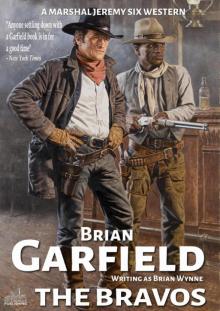 Marshal Jeremy Six #3
Marshal Jeremy Six #3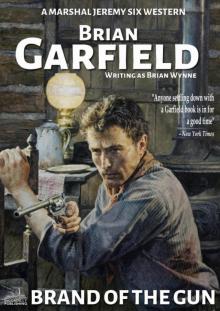 Marshal Jeremy Six #6
Marshal Jeremy Six #6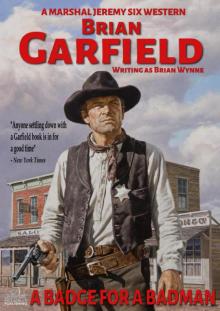 Marshal Jeremy Six #5
Marshal Jeremy Six #5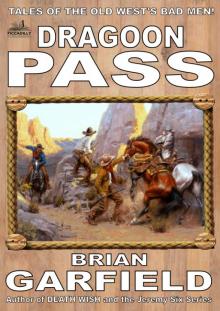 The Outlaws 2
The Outlaws 2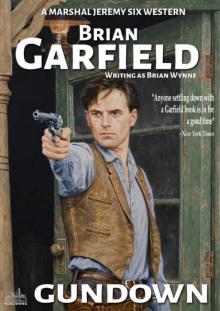 Marshal Jeremy Six #7
Marshal Jeremy Six #7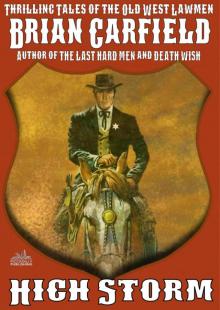 The Lawbringers 4
The Lawbringers 4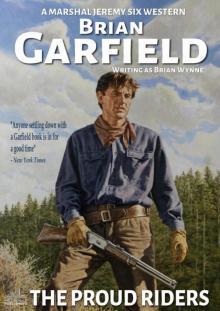 Marshal Jeremy Six #4 the Proud Riders
Marshal Jeremy Six #4 the Proud Riders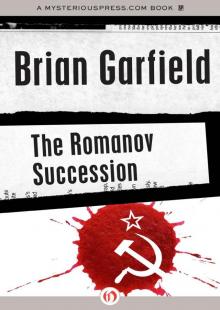 The Romanov succession
The Romanov succession Marshal Jeremy Six #8
Marshal Jeremy Six #8 Sliphammer
Sliphammer Line of Succession
Line of Succession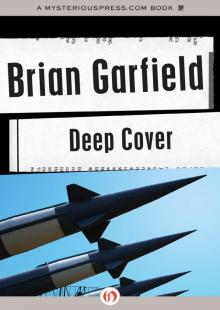 Deep Cover
Deep Cover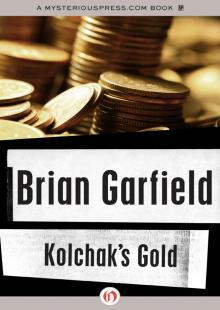 Kolchak's Gold
Kolchak's Gold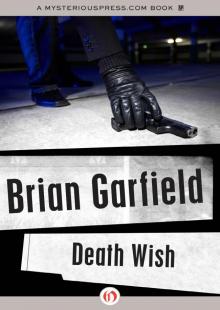 Death Wish
Death Wish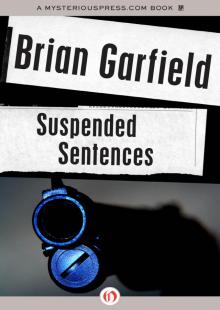 Suspended Sentences
Suspended Sentences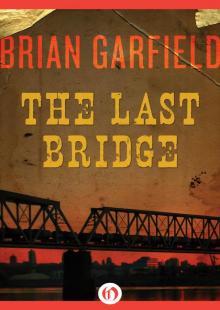 The Last Bridge
The Last Bridge Relentless
Relentless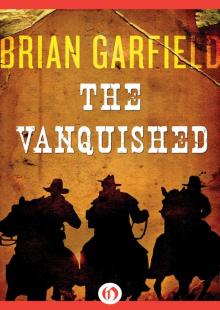 The Vanquished
The Vanquished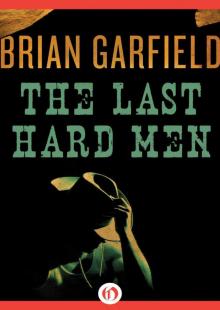 The Last Hard Men
The Last Hard Men Hit and The Marksman
Hit and The Marksman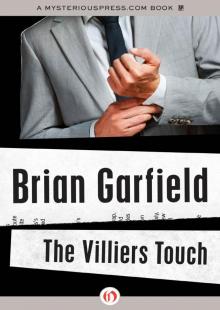 Villiers Touch
Villiers Touch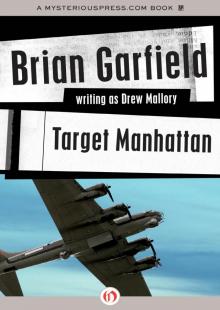 Target Manhattan
Target Manhattan Marchand Woman
Marchand Woman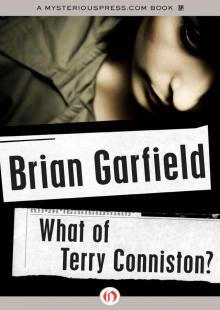 What of Terry Conniston?
What of Terry Conniston?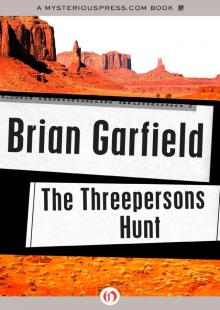 Threepersons Hunt
Threepersons Hunt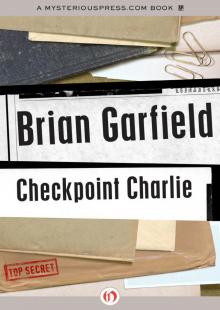 Checkpoint Charlie
Checkpoint Charlie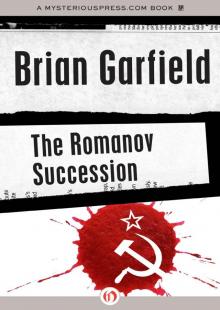 Romanov Succession
Romanov Succession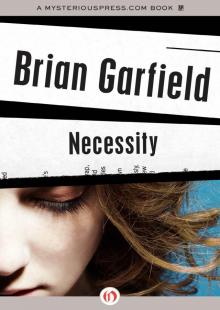 Necessity
Necessity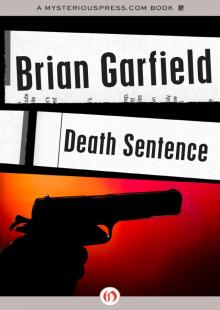 Death Sentence
Death Sentence Fear in a Handful of Dust
Fear in a Handful of Dust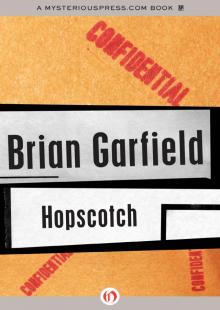 Hopscotch
Hopscotch